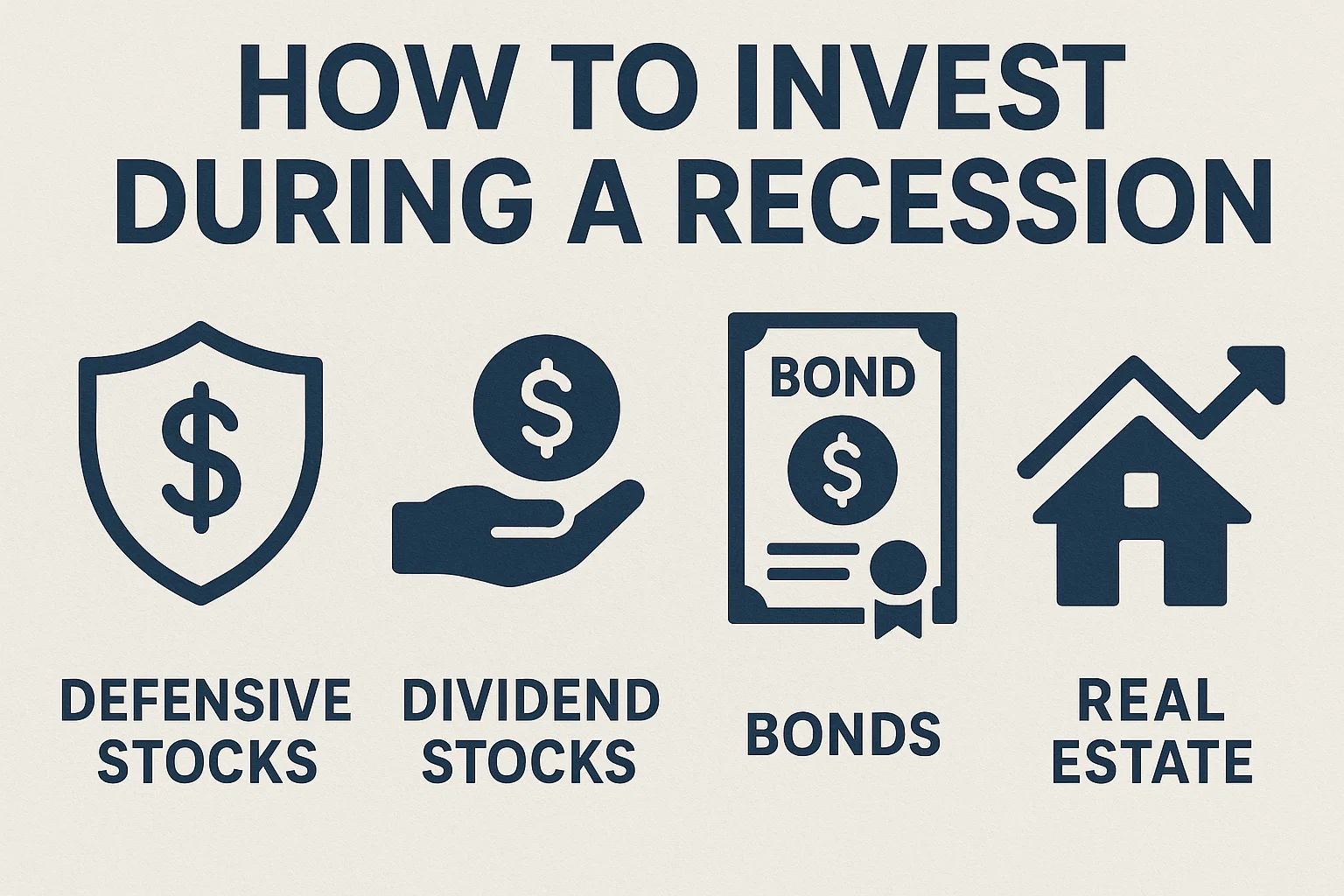Breaking News
Popular News




Enter your email address below and subscribe to our newsletter

A recession can trigger fear in the market—but it also offers unique investing opportunities for those who know where to look. In 2025’s uncertain economic landscape, understanding how to invest during a recession is more crucial than ever.
Let’s explore 7 proven strategies that can help you protect and even grow your wealth when the economy slows down.
Certain industries tend to perform better during a downturn:
🛒 Consumer staples (FMCG, groceries)
🏥 Healthcare and pharmaceuticals
⚡ Utilities and energy
📡 Telecom services
These sectors provide essential services, making them relatively stable investment options.
Dividend-paying companies offer steady income during turbulent times. Look for:
Strong balance sheets
Consistent dividend history
Low debt-to-equity ratio
Examples include ITC, HUL, and Infosys in India, or Procter & Gamble and Coca-Cola globally.
During recessions, capital preservation matters. Add these to your portfolio:
Gold ETFs or physical gold
Short-term government bonds
Fixed Deposits or high-interest savings accounts
These act as hedges against volatility.
Now is the time to:
Reduce high-risk assets (penny stocks, volatile cryptos)
Increase allocation to defensive investments
Maintain asset allocation aligned with your risk profile
Recessions often offer undervalued stock prices. Instead of panic-selling:
Keep your long-term vision
Invest in quality stocks with strong fundamentals
Avoid emotional decisions
History shows markets rebound — patience pays off.
Continue or start a Systematic Investment Plan (SIP):
You buy more units when prices are low
Helps average out the cost
Encourages financial discipline
SIPs during recessions build long-term wealth.
Before aggressive investing, ensure you have:
6–12 months of essential expenses
Funds parked in liquid or ultra-short debt funds
Easy access in case of job loss or medical emergency
It can be, but with the right strategies, it’s also a great opportunity to buy quality assets at a discount.
No. SIPs allow you to buy more units when prices are low, helping in long-term wealth creation.
Government bonds, high-grade corporate debt, gold, and fixed-income options are considered safer.
Yes. If you invest in undervalued stocks or sectors that rebound well post-recession, you can see significant gains.
Recessions test your financial patience and strategy. By following these 7 powerful investing moves, you can turn fear into opportunity and position your portfolio for strong long-term returns.
Stay updated with recession-proof strategies at 👉 bit2050.com